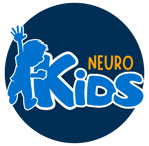
CHILD AND FAMILY PSYCHOEDUCATIONAL GUIDANCE
Guiding Families and Enhancing Child Development...
At NeuroKids, our approach to child and family psychoeducation goes beyond traditional consultations. We specialize in integrating neuroscience and educational psychology to provide a unique and personalized support system for each family. We understand that no two children are alike, which is why each intervention is tailored to the specific characteristics and needs of the child and their environment. What sets us apart is our ability to offer a comprehensive, evidence-based approach that considers all aspects of child development: cognitive, emotional, social, and family-related. We don’t just focus on the child—we actively involve the entire family in the process, providing clear and practical strategies that can be applied daily at home, at school, and in everyday life. This creates a consistent and positive environment for the child, promoting long-term well-being and development.
Family Psychoeducational Guidance
Psychoeducational guidance is a crucial tool in child development, especially in today’s world, where families face various challenges and external pressures. For young or first-time parents, raising a child can feel overwhelming, as each developmental stage brings new questions and concerns. In these cases, having specialized guidance on parenting styles and child education can make a significant difference in how parents navigate daily challenges and support their child's emotional and psychological well-being. Psychoeducational guidance helps parents understand their child’s developmental needs and implement appropriate strategies for each stage of growth. This support is essential to prevent potential conflicts and promote positive parenting, ensuring that parents feel more confident and capable in their role. By providing practical tools and knowledge about child development, we help families create an emotionally safe and stimulating environment for their children, fostering healthy growth and long-term well-being.
Concerns and Questions That Can Be Addressed Through Educational Guidance
Parents, especially first-time parents, often have many questions about their child's well-being and development. Some of the most common concerns that psychoeducational guidance can help address include:
Is my child’s development on track?
How can I improve communication with my child and set healthy boundaries?
How do I handle tantrums or challenging behaviors?
What can I do if my child shows signs of anxiety or insecurity?
How can I foster a positive relationship between my child and their teachers?
How can I balance my personal life with the demands of parenting?
How do I manage parenting style differences between caregivers?
These concerns are common and often don’t require complex solutions, but rather the implementation of appropriate, personalized strategies that help parents understand their child’s needs and provide the necessary support for healthy development.
Is My Child’s Development On Track?
This is one of the most common questions among parents, especially when it comes to young children or those in their early stages of development. Psychoeducational guidance provides parents with the tools to observe and understand the different stages of child development, helping them identify warning signs if something isn’t progressing as it should. Psychoeducational professionals provide comprehensive evaluations that include the emotional, social, cognitive, and physical development of the child, ensuring that parents feel supported and reassured in their role. With psychoeducational guidance, parents can achieve several benefits that directly impact the well-being of the family and the child’s development. Some of the most significant achievements include:
Development of effective parenting skills, tailored to the needs of each child.
Improvement in family communication and the establishment of a trusting and respectful environment.
Resolution of family conflicts, such as differences in parenting opinions or difficult behaviors.
Promotion of emotional well-being in both parents and children, contributing to a more harmonious home life.
Prevention of emotional issues in the child by implementing appropriate strategies from an early age.
Strengthening the family bond through mutual understanding and support.
With the proper support, parents can feel more confident in their role and provide their children with the foundation for healthy emotional and social growth.
Differences Between Psychoeducational Guidance and Traditional Family Therapy
Psychoeducational guidance differs from traditional family therapy in several key aspects. While traditional therapy focuses more on resolving specific family or emotional conflicts through the analysis of family dynamics and intervention in deep psychological issues, psychoeducational guidance takes a more preventive and educational approach.
Psychoeducational Guidance at NeuroKids:
Personalized and evidence-based approach: We tailor psychoeducational strategies to the individual needs of the child and family, using proven tools and methods that maximize the emotional and social development of each child.
Specialization in neuropsychology and education: We combine the most advanced knowledge in neuroscience, educational psychology, and child psychoeducation to address both cognitive and emotional difficulties children may face.
Involving the whole family: We understand that the family environment plays a crucial role in a child’s development, so we work with parents and caregivers to provide effective tools that foster positive parenting and healthy communication.
Early detection and prevention: We offer services that help identify early signs of emotional or academic difficulties in children, allowing for preventive intervention to avoid future problems.
Practical and accessible approach: Our goal is to empower parents to implement what they have learned by offering practical, easy-to-follow strategies that truly make a difference in the family's daily life.
Ongoing support and follow-up: At NeuroKids, we don’t just provide one consultation; we ensure continuous support, guaranteeing that the recommended strategies and approaches are successfully implemented in the long term.
Some Key Differences
Educational Focus: Psychoeducational guidance focuses on educating parents about child development, positive parenting styles, and creating a healthy environment for children’s emotional and psychological growth.
Prevention and Practical Tools: While traditional therapy addresses existing problems, psychoeducational guidance aims to prevent future difficulties by offering practical tools and parenting strategies.
Parental Role as Active Participant: In psychoeducational guidance, parents are active participants in the process, learning and applying what they have learned in their daily lives. In traditional therapy, the focus may be more introspective and centered on the family members during the consultation.
Long-Term Goals: Psychoeducational guidance aims to establish solid foundations for the development of the child and family, whereas traditional therapy often addresses immediate emotional issues.
WHY CHOOSE US?
Psychoeducational guidance is an invaluable tool for parents looking to learn and grow in their role effectively and lovingly, establishing a home where the well-being and emotional development of their children are always a priority. Choosing NeuroKids means opting for a comprehensive and personalized approach, where every aspect of your child's development—emotional, social, and educational—is addressed with the highest dedication and professionalism. We are committed to creating a safe, warm, and trusting environment where children can fully develop, always with the close and specialized support of their family. At NeuroKids, your child will not only receive the support they need, but the whole family will be guided on the path toward emotional well-being and personal growth.




Schedule Your FIRST SESSION
At NeuroKids, we care about providing you with the best care from the very first moment. If you are ready to take the next step in your child's well-being and development, scheduling your first session is the first step toward a path of comprehensive and specialized support.
Here’s how the process works:
Appointment Request and Initial Interview (completely free).
Regular sessions last approximately 30 to 45 minutes.
PAP sessions are free and last approximately 15 minutes. (PAP sessions are for individuals in psychological crisis or with elevated stress levels only).


